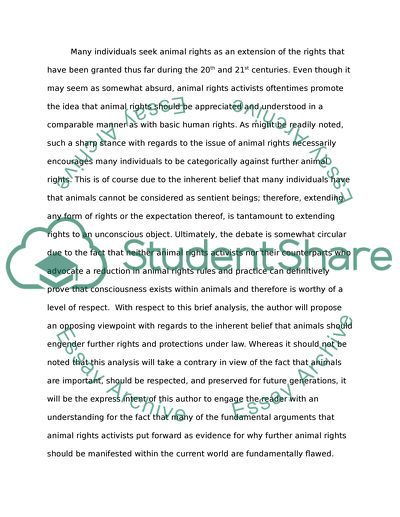Cite this document
(“Opposing sides of Animal rights Research Paper Example | Topics and Well Written Essays - 1750 words”, n.d.)
Retrieved de https://studentshare.org/english/1494316-opposing-sides-of-animal-rights
Retrieved de https://studentshare.org/english/1494316-opposing-sides-of-animal-rights
(Opposing Sides of Animal Rights Research Paper Example | Topics and Well Written Essays - 1750 Words)
https://studentshare.org/english/1494316-opposing-sides-of-animal-rights.
https://studentshare.org/english/1494316-opposing-sides-of-animal-rights.
“Opposing Sides of Animal Rights Research Paper Example | Topics and Well Written Essays - 1750 Words”, n.d. https://studentshare.org/english/1494316-opposing-sides-of-animal-rights.


